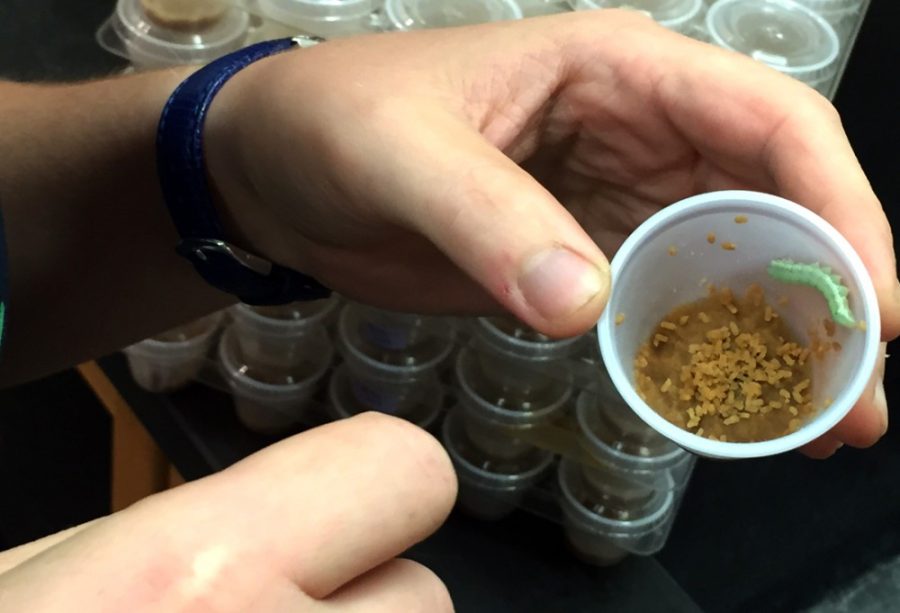Transgenic or genetically modified crops have long been a fear for some consumers. However, studies show GM crops are actually highly regulated and can replace or reduce the use of dangerous chemicals in agriculture.
In last month’s Journal of Animal Science, Alison Van Eenennaam and Amy Young from the department of animal sciences at the University of California, Davis, showed that there were no impacts of GM foods on agricultural production animals since their inception in the field in 1996.
Yves Carrière, a professor in the department of entomology, said there are no known negative impacts of transgenic crops on human consumption. The issues surrounding GM crops are social and political, not scientific, Carrière said. A more important issue for GM crops, especially those that contain insecticides, is to ensure that insect pests do not become resistant and cause more damage.
“There are two main types of genetically modified crops, which are Bt and Roundup Ready,” said Kara Welch, a molecular and cellular biology instruction specialist and former entomology and insect science graduate student. “Bt crops produce their own pesticide, while Roundup Ready crops are resistant to herbicides. … Bt, or Bacillus thuringiensis, is a soil bacterium that produces its own insecticide, which has been genetically modified into corn and cotton primarily.”
The UA has become a major resource on the management and preservation of genetically modified organisms, in particular Bt cotton, said George Frisvold, a professor in agricultural and resource economics. For Bt, reducing chances of insects developing resistance to the pesticide in crops will promote the crops’ longevity in the field. Recent research from the UA continues to add to policies that attempt to prevent these outbreaks of resistance.
Carrière is publishing a paper in the journal Nature Biotechnology on cross-resistance. Cross-resistance is when an insect develops resistance to a toxin, which confers resistance to another toxin in the same insect.
“We are working with [a] pest that does not meet any of the assumption requirements [for Bt crop management],” Carrière said. “Our goal is to show that there are aspects [of management] that people are not thinking about and we should be looking at them more seriously.”
This study of cross-resistance is important to understanding new management strategies, because cross-resistance can have a large impact on how Bt crops are managed, Welch said. She explained that insect resistance in a Bt toxin in one GM crop could impact other crop systems using different Bt toxins. Understanding cross-resistance could help improve the regulations that are in place now to reduce resistance and continue the usage of GM crops, like Bt.
“One of the reasons Bt was regulated so heavily was because organic producers did not want resistance to build up,” Frisvold said. “They did not want to ruin the efficacy of their sprays for organic production. [Bt] has cut down on conventional pesticide sprays. So, it saves farmers money and there are less toxic chemicals being used on the land in Arizona.”
Bt has dramatically reduced the impact and usage of chemical insecticides in Arizona cotton production, as well as in other crop systems, Frisvold said. As a biological insecticide, Bt targets specific insect pests while conventional chemical insecticides target a broad spectrum of pests.
Frisvold said most of what the concerns with transgenic crops are is their impact on human health and ecological problems.
Welch said she believes the most important objective is to raise awareness of what Bt is.
“I think there is a lot of fear associated with not being informed, and in order to progress and to feed the whole world, we need to come to terms with technology,” Welch said.
_______________
Follow John McMullen on Twitter.









